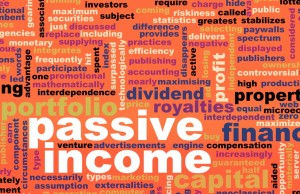Different money habits can result in very different financial futures…
Meet Millennial’s Alex and Cleo.
Currently they earn the same annual income and have similar financial obligations in their 30s.
As the years pass, different money habits will see Alex build wealth and become financially free. While Cleo will continue struggling to make ends meet well into her golden years.
Here’s a peek into the money habits of a financial freedom wealth builder vs a live for the now money spender. And the lifetime impact of these choices.

Alex vs Cleo: Spending Money Habits
Cleo doesn’t really take a consistently structured approach on planning where her money goes each month.
She knows her expenses and gets them paid on time but once that’s done, she considers the rest ‘free’ money. Cleo treats herself regularly especially with online shopping, expensive dinners, and clothes.
She often spends more than she earns and only makes the minimum payments on her credit card. The balance always seems to hang around 3k.
Taking more of a measured approach to his money habits. Alex is thoughtful about the purchases he makes, both big and small. He doesn’t buy a lot but when he does, he’ll pay for a quality product; quality over quantity is definitely his mantra.
He has a monthly spending plan which he sticks too and despite having a decent amount of disposable income, he lives well below his means. He uses a debit card instead of a credit card for online purchases.
Alex vs Cleo: Saving Money Habits
Alex is a saver, with the goal for his savings to be money he invests. He always pays himself first – a golden money habit every wealthy person has.
Cleo, on the other hand, knows saving is important but doesn’t see it as a foundation for investing. Instead, she simply puts money sporadically into a ‘high interest’ savings account.
Cleo’s also making a major saving mistake. She’s only saving the money she has left at the end of each month after she’s paid her essential bills and non-essential general lifestyle expenses. This means the amount of money that’s left over often fluctuates and often there isn’t any at all.
This might be sounding familiar…
Alex vs Cleo: Investing Money Habits
Cleo’s investments are her employer-based retirement fund to which she doesn’t make any additional contributions and her city apartment. The idea of making her own investments scares her. She’s happy to leave “all that stuff” to her superannuation company.
She has around 300k left on her mortgage and pays it off at the required rate per month.

Alex has taken control of his own investments. He has spent time learning about investing by reading books and taking courses to create a diversified portfolio himself.
He’s automated the amount he invests on a monthly basis. This keeps his portfolio growing without a lot of effort or willpower on his behalf.
He also has his employer-based superannuation and a home in the suburbs. He’s made a plan to pay down his mortgage aggressively over the next 10 years.
Alex vs Cleo: Mindset
As well as their money habits, different money mindsets also set Alex and Cleo apart on their financial roads.
Living in the moment, Cleo doesn’t focus her attention on the future. Her priority is her current financial obligations and uses what is left for her ‘fun money’ and a little saving occasionally.
Without any investments beyond her superannuation (which won’t be enough) Cleo is working for an hourly wage, entirely dependant on her job for income.
She thinks paying for courses to expand her professional horizon is a bit of a waste of money. Cleo is waiting for the free ‘upskill’ offerings provided by her company.
Alex focuses his time, energy and resources on activities and investments that continue to pay off long after his initial effort has been invested.
He is future-focused and patient, he doesn’t need to see a reward right away. Alex’s investments and income streams mean his money is working for him. He also invests in his professional development to maximise his future earning potential.
Alex vs Cleo: Income streams
I mentioned Alex and Cleo both earn the same, but 5 years from now, Alex has overtaken Cleo in the income stakes thanks to his smarter money habits.
His commitment to professional development has paid off in the form of a big promotion. He’s also focused intently on creating various income streams.
He offers coaching in his industry on the side, rents a room out on Airbnb a couple of months a year, and his investment in dividend stocks is paying off with a growing passive income stream.
Alex splits the income he’s receiving from these additional income streams between reinvesting it and making additional payments to his mortgage.

During the 5 years, Cleo did change to a new role in the same industry, with a 5k increase in salary. However, rather than save the extra 5k, she’s taking more overseas trips during the year instead. Her job remains her sole source of income and while it’s a decent amount, some months there isn’t enough to make ends meet.
Alex vs Cleo: The company they keep
If you choose the right group of friends, you can push yourself to achieve bigger goals on all fronts, professional, personal and financial. As Warren Buffett once said. “You will move in the direction of the people that you associate with.”
Alex spends time with a group of friends who all have big goals and aspirations – and they spend much of their time trying to achieve them. Like Alex, they’re proactive, future-focused, and encourage each other.
Cleo’s friends are quite different. They spend a lot of time talking about their problems but not trying to find solutions for them. They all have YOLO mindsets, and future goals and finances aren’t something they talk about – unless it’s to complain about money problems.
The end result?
Though they started with a similar financial outlook in their 30s, their contrasting money habits will create completely different retirement results.
Alex will accumulate a nest egg of more than a million dollars and his multiple income streams continue to bring in money after he officially retired.
Cleo, on the other hand, will have just enough in her super plus the pension to live a basic retirement. With no other forms of income, she’s heavily reliant on the government pension to make ends meet. A major unexpected expense would see her dip into a very precarious financial position, one which may not be able to come back from.
The thing is, while it’s easy to be Cleo, it’s actually not that difficult to end up with a result like Alex. Yes, it takes more work and commitment but creating good financial habits coupled with a bias to invest can put you leagues ahead in the financial stakes over time.
If you are feeling a little more like Cleo than Alex right now and want to change that, it’s not too late to turn things around…

Access to our Investing Bootcamp program is OPEN for enrollment. You can check it out here, but hurry, it goes away in a few days. ACT NOW
